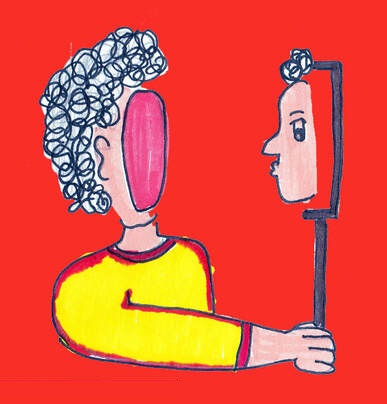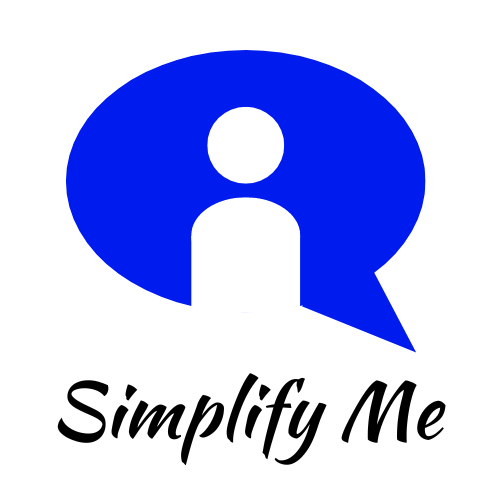
Wisdom tends to grow in proportion to one’s awareness of one’s ignorance – Anthony de Mello
First, I’d want to tell you a story that is very unusual.
Two little boys were playing outside the courtyard of the world-renown Louvre Museum. On a beautiful September day in 1816 in Paris. Across the courtyard, a young, restless doctor called René Laennec was pacing. It was clear that he was preoccupied with some idea. The city was getting its first glimpse of the morning sun, and Laennec had to meet a heart patient at the hospital.
René Laennec began his still-tense journey across the courtyard after pacing for some time. Something weird hit him on the way as he crossed the two children playing in the grass. He paused, his intense gaze fixed on the children.
A youngster was using a pin to tap the end of a lengthy wooden plank. Across from him, his friend kneeled down, his ear close to the edge of the board. Nodding in response to the first child’s question, “Did you hear anything?” was a resounding negative from the second man. He applied a little more pressure on the pin, prompting the other to raise his thumbs in agreement.
A sudden inspiration hit Laennec. “It is a famous fact in acoustics. If you put your ear to one end of a wooden beam, you can hear the scratch of a pin at the other end.” It dawned on him that this tangible asset might be relevant to the matter at hand. As soon as he arrived at the hospital, he requested a sheet of paper. Wrapping it in a tube, he pressed it on his patient’s chest. The next thing he heard shocked him. Compared to when I put my ear to her chest, he could make out her heartbeat with much more clarity.
After this incidence, René Laennec invented the stethoscope.
The medical industry was forever altered by Laennec’s straightforward idea. There had never been a more secure method for doctors to learn about a patient’s internal health. Everything was not based on the patient’s words or the way they expressed their illness. At last, they had an independent way to check and quantify things.
Which begs us to the question: how is self-awareness related to this story?
Here we are at the topic of the day. We need a tool to help us recognise when we are lying to ourselves, because we do it frequently. Our instrument, self-awareness, is analogous to a doctor’s stethoscope.
Enquiring minds beckon! Now, we can move forward.
First things first, we all lie to ourselves quite a bit. I’m not alone in this. Upon further investigation, I discovered one trend. The majority have tendencies to exaggerate the advancement towards our most critical objectives.
- Take weight reduction as an example. Most people would boast about their perfect diet. While in fact they had the poorest control over what they ate.
- Claiming to be striving to write more is a common tactic for creative types. They aren’t committed to adhering to a strict publishing schedule. (According to my wife, my diet plan)
- You enrolled in a class with the intention of discovering a new hobby. To play an instrument—but you dropped out a few months later, saying that the class was not for you. Deep down, you’d realise that you wasted a lot of time. Time watching TV or browsing YouTube instead of practicing your instrument. (Reference: My kids)
We humans have come up with a rather charming method of stating that you are not responsible. The majority of us have forced to utter one of these half-hearted statements. For example, “I’m doing well with the time I have available.” Or “I’ve been putting in a lot of effort lately.” Hard metrics are almost never included in these claims. Most of the time, they’re weak reasons to feel better about having a goal that we haven’t moved towards. (I know this to be true. Since I’ve made similar claims that research is time-consuming for blogs like this.)
Are we concerned about these very minor and irrelevant rationalisations or lies?
They may not appear to be much at first glance, but they are. Actually, they are the main culprits that make us lose focus on the task at hand. Although it’s crucial to pay attention to how we’re feeling at any given moment, it’s easy to fool ourselves. We tend to lose sight of our progress metrics when we rely on positive self-talk to gauge our success.
The stethoscope allowed doctors to assess their patients’ internal conditions without any dependencies. When it comes to our personal life, we can also use technologies to diagnose what’s going on with us.
Methods for Examining Oneself
If you want to reach your goal, the first thing you need to do is see things as they are. You need to know where you stand right now. Before you can work on yourself, you must first be conscious of where you are.
I won’t bother you with motivational tools. Instead, I’ll share my experience and allow you to decide whether you want to follow it. This isn’t a habit-based solution, so I can guarantee it will work for everyone. It’s about raising awareness.
1. Time Journal
I have kept a note of all my significant goals in my journal for the last three years or so. Here are five of my most important objectives over the next two years. Reviewing past notes to see how far I’ve come is an intriguing pastime. I’ve discovered that this strategy is at its most effective when used monthly. I used to keep a diary when I was a kid, but it was far more filled with personal thoughts and observations. Here it is a straightforward record, which contains nothing but numerical data. Keeping a notebook has helped me a lot. It avoids mindless activities, aimless walking, and the trap of “doing some stuff.” This simple tracking allows me to make targeted progress every week.
I have removed all sensitive information and entries from my goals. And am now presenting a revised version, in a dashboard template.

2. Integrity Report:
I summarise my career & personal life accomplishments in my integrity report. It’s an annual frequency task. Furthermore, I make it a point to prove how I am doing by my fundamental principles. Following my life coach certification, I began these two practices. At that moment, I realised how beneficial this practice was for me. My journey in the past three years has been incredible. Given the sensitive nature of the report, I will share the outline I use in the hopes that you may find it useful.
In this Integrity Report, I will address three primary questions.
In everything that I do, what are the most important principles that I try to live by? Currently, how am I able to live and work in an honest manner? Where may I improve my future standards-setting abilities? What are the fundamental principles that I base my actions on?
1. Development
- Do I have the opportunity to discover new things, go to interesting places, and try out novel ideas?
- Is it becoming second nature for me to make improvements?
2. Honouring Oneself
- Is my full potential realised now?
- Am I allowing myself to be content with my current situation?
- Do my actions reflect the kind of person I say I am?
3. The Impact on Society
- Do I make a difference or am I only a consumer?
- Do other people’s lives improve because of my actions?
- At this very moment, how can I live and work in an honest manner?
Till I discovered a handful of apps, I believed I was very productive. I had exceptional time management skills. Ever since I began making extensive use of them, I have felt much more secure.
You can start by downloading the first app, Rescue Time, which is premium but worth the money. It tracks your usage for a week and generates a detailed report. If you had asked me how productive I was outside of work hours, my answer would be. Before using these apps, I would have replied that I was productive 80% of the time and only spent 5% on social media. I was only 40% productive before the app and spent 9% of my time on social media after it arrived. Experience firsthand how this software analyses your perception using real-life data.
My second app of choice is FOREST, a tool for keeping track of time. Forest is great if you want to make keeping track of time a little more fun. I then use EVERNOTE to keep track of my to-do lists and checklists for the day, week, and month. For my fourth point, I keep track of all my personal and professional tasks with the help of TRELLO. It’s a cloud-based task management program.
Using this, I can assure you that I am far more productive and efficient now than I was two years ago. But I am by no means claiming to have become superhuman.
Your first order of business should be to raise your level of self-awareness.
Change is difficult to achieve on a consistent basis if you aren’t cognizant of your actions. It’s like shooting arrows into darkness, if you want to improve without self-awareness. If you do not know the exact location of the target, you should not expect to strike it. Even Arjuna had to practice the shot many times before he could do it blindfolded. Being self-aware is the only way to gain the strength you need.
It’s slow but for sure, when you start to understand your condition, self-doubt will arise. Reason being, you no longer identify with the person you once did, and shattered are most of your myths. At the point when this pessimism begins to impede you, the Bhagawat Gita will be of help.
Rajaji used this shloka from Chapter 2, Shloka #40, to cut this quotient.
नेहाभिक्रमनाशोऽस्ति प्रत्यवायो न विद्यते |
स्वल्पमप्यस्य धर्मस्य त्रायते महतो भयात् || 40||
nehābhikrama-nāśho ’sti pratyavāyo na vidyate
svalpam apyasya dharmasya trāyate mahato bhayāt.
When working in this state of mind, there is no loss or bad outcome. Even a small amount of effort keeps one from being in great danger.
Fear of failure is the biggest threat we confront when we set out to achieve a new goal. The slokha makes it crystal clear of one thing. That the effects will be visible regardless of the amount of execution. So, Rajaji emphasises the same. Management will recognise your work and intention put in regardless of final result.
Contact me for a one-on-one session on self-awareness if you need further help. Let me assist you.


This is the kind of writing that doesn’t just sit on the page — it makes you feel something deep inside.
Very good blog